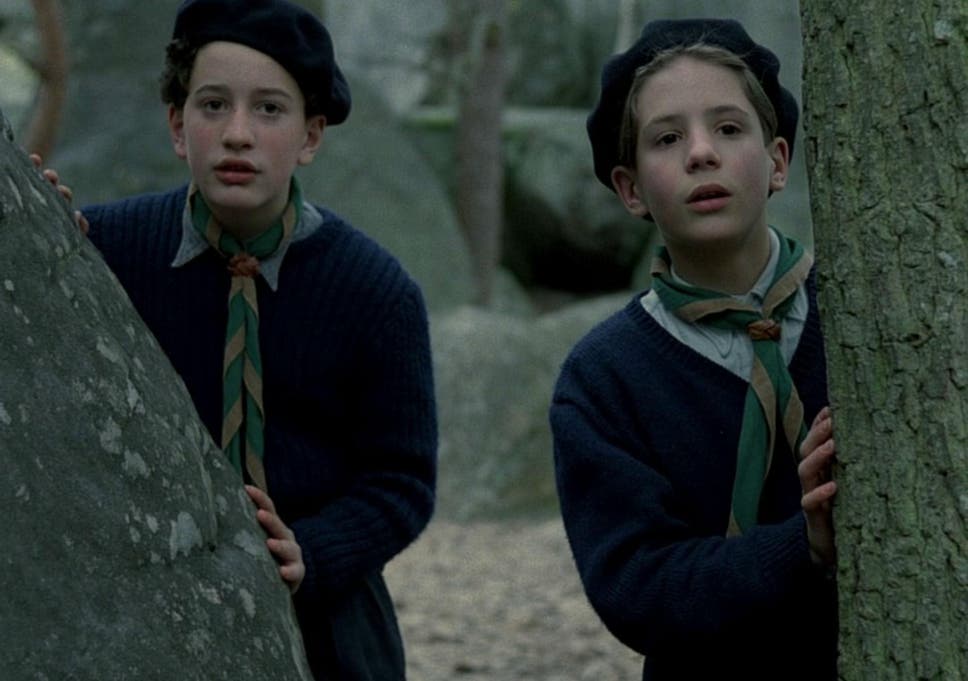After a run of American films that included the now-canonical Atlantic City and My Dinner with Andre – followed, in turn, by the less successful Crackers and Alamo Bay – Louis Malle returned to his native France in the mid-1980s, where he set about producing his most autobiographical work. An account of the writer-director’s experiences during 1943-44 at a Catholic boarding school in Fontainebleau, 1987’s Au Revoir les Enfants would be Malle’s attempt to reconnect with his own heritage, and his country’s troubled past.
Reissued this week to mark the global Holocaust commemorations, the film retains the look of a highly personal confession: a careful outpouring of emotions that – as the debate surrounding the release of Lanzmann’s Shoah two years earlier had suggested – were still, four decades on from the war’s conclusion, being processed. It remains one of those rare occasions when a filmmaker could truly lay claim to being the voice of their generation.
That it became Malle’s biggest success worldwide is doubtless attributable to school’s status as a universal rite-of-passage: it should still strike chords with anybody whose little face lit up at the sight of a dog on the loose in the playground. Malle depicts the beatings and bullying that went on between the bombing raids that forced him and his contemporaries into the school’s basement, but also a good deal of boyish bonhomie; his interest resides in the shelter the school provided young minds and bodies, and how – like the rations the pupils shared between them – it could ultimately stretch only so far.
At the film’s centre is the rapport rich kid Julien (Gaspard Manesse) – the Malle surrogate; he has his homework marked as “intelligent, but a bit pretentious”, which sounds exactly the sort of evaluation a budding filmmaker would receive – strikes up with curly-haired newcomer Jean Bonnet (Raphaël Fejtö). The two boys bond over a shared love of reading, “The Three Musketeers” their preferred text, only to find Vichy France isn’t entirely receptive to Dumas’s one-for-all, all-for-one credo, after Julien discovers his pal was actually born Jean Kippelstein, and that le jeune Bonnet has been keeping something under his hat.
Shot by Renato Berta in sombre tones that do much to evoke the years of austerity, the film treats Kippelstein’s Jewishness as a rather more contentious form of the contraband the boys squirrel away from their keepers in the school’s mouldering brick walls. Malle never labours his points – the film remains more coming-of-age pic than historical tract – and even when Julien sees Jean playing the piano (for a young Irène Jacob, as the school’s music teacher) and apparently drawing upon a deep well of sadness, our hero can’t quite put the pieces together. (“Arse licker” is his considered response.)
We do, however, gain a palpable sense of the encroachment this period entailed: personal space comes to be broached, secrets dragged into the cold light of day. Joshing German soldiers populate the local bathhouse; Vichy officers storm an upmarket restaurant; by the final act, the Gestapo are storming the classroom, and rearranging the map of Europe. Much of it has the feel of vivid, formative lived experience. The scenes depicting Julien’s fear upon being abandoned in the woods during a treasure hunt, and his joy upon discovering Chaplin, are composed of sights and sounds Malle clearly couldn’t forget easily.
Though the school often appears like a microcosm of the wider country – notably during the last-reel betrayals (“C’est de la guerre, mon vieux”) – the perspective throughout is that of an uncommonly mature schoolboy: Julien and classmates have opinions on everything from the pin-ups they’ve swiped from their brothers to whether Laval has sold France down river, and even the smokers behind the bike sheds are discussing Bergson. Malle knew what wartime does to innocence, and Au Revoir les Enfants stands as his own, powerful testament of youth: an acknowledgement one was forced to grow up regrettably quick back then.
(MovieMail, January 2015)
Au Revoir les Enfants is available to rent via Amazon Prime.

No comments:
Post a Comment